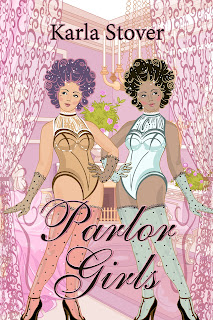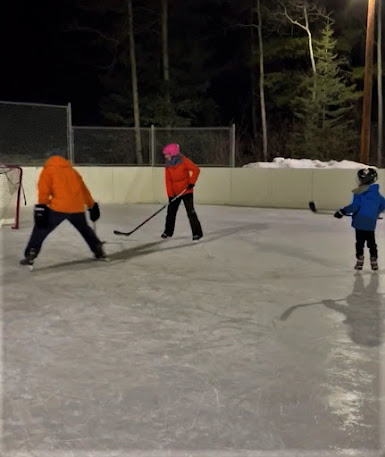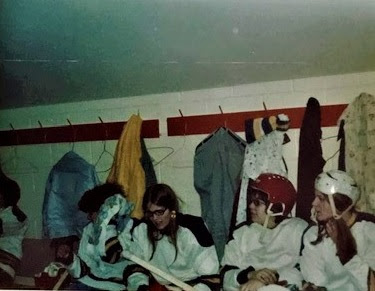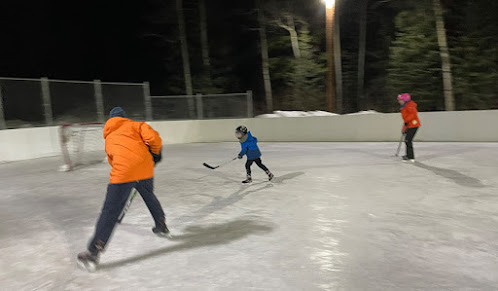Wednesday, March 15, 2023
Creating Characters by Paul Doucette
Tuesday, March 14, 2023
Artificial Intelligence – Can You Program Creativity? By BC Deeks, Paranormal Mystery Fiction Author
Artificial Intelligence, or AI, is a trending topic these
days, with applications like ChatGPT and Jasper being touted as replacements
for human writers. These applications are models trained on a large codex of
text data that can generate responses to questions, summarize long texts, write
stories and much more. It is often used in conversational AI applications to
simulate a human-like conversation with users—You’ve probably already been
chatting with AI if you’ve contacted online Customer Service.
The jury is still out on whether the latest AI language
model, ChatGPT, is actually intelligent, as defined by a machine's ability to
behave like a human. They are still basically just a computer program designed
to respond to text inputs and generate outputs based on patterns in the data
they’ve been trained on.
In theory, AI can even be used to write a book. But would that book be a good story or just be a distillation of characters and plot from previously published works? If AI does not have intelligence, could it take the data and CREATE a unique and imaginative piece of work the way a human author does.
From my research, I gather AI software can generate a list
of book plot ideas, suggest opening paragraphs, and output a batch of character
sketches. If an author provided the program with a detailed outline of a story,
it might produce a workable first draft of a novel. AI language models seem
best suited to generating non-fiction web content or product copy and even then
should be proofed and fact checked by the writer. I read an article generated by the Jasper AI application
and it contained 7 typos and grammatical errors. The author had clearly not
bothered to check the work before publishing.
Getting back to fiction, I don’t think authors will be out
of work any time soon. If an AI language model was asked to generate a
bestselling novel with a dragon and a wizard in a magical dimension, I believe
the key components of a saleable novel would be missing — imagination and
creativity. AI models can only pull from what has already been done; not
imagine the things that are new and exciting. AI language models are, IMHO,
another tool in a writers’ toolbox that might speed up the process of
generating the words on the page. I'll admit to using a copy editing software program to help with my revision process for practical reasons. It helps me spot awkward sentence structures, grammatical errors and typos in my manuscript. But at the end of the day, human intervention
is required to bring the magic to the story.
For the time
being, I’ll be writing REBEL SPELL, book 3 in my Beyond the Magic trilogy, with minimal aid from artificial intelligence. Besides I love writing, so why
would I want to give it up?
 Author B.C. Deeks writes heartwarming stories of mystery and magic. Born and raised in Newfoundland (Canada), she currently lives in Alberta. Find all BC Deeks’ news at www.bcdeeks.com.
Author B.C. Deeks writes heartwarming stories of mystery and magic. Born and raised in Newfoundland (Canada), she currently lives in Alberta. Find all BC Deeks’ news at www.bcdeeks.com.
Monday, March 13, 2023
Maple Sugar Moon
Here in Vermont, we are into Sogalikas, the Sugar Maker Moon, fourth in the lunar year. The Abenaki people say that they learned of a delicious treat from the red squirrel nation. Squirrels nip off the end bud of a maple twig and drink the sap flow from the tip at this time of year. The Abenaki were quick to imitate Brother Squirrel!
Now we boil down the sap in sugar houses all over Vermont. It’s a festive time of visiting and telling stories around the fires.
March is also the month to celebrate all things Irish— literature, song, dance and history, myth and legend. What rich heritage we can draw on from both the first peoples and the many immigrants, rich with their own stories, who came to our shores!
Sunday, March 12, 2023
A Bit of Blarney for St. Patrick's Day
Please click this link for book and author information
I decided I couldn't come this far without trying. Here I go - awkwardly. In addition to virus concerns, in order to touch the stone with your lips you have to lean your head way back through the gap along the castle edge. A man holds your body and bars prevent falls to the ground. At worst, you'd bang your head. But arching backward over a high drop-off is a creepy feeling of letting go. Did I really need any more gab to write my novels? Hundreds of lips had touched the stone already that day. I blew the blarney stone a kiss and was content with getting close.
 I am the author of two mystery novels, Deadly Fall and Ten Days in Summer, both set in Calgary, AB, and featuring insurance adjuster sleuth Paula Savard. My short stories have won contests and appeared in magazines and anthologies, most recently in Writing Menopause, Long Lunch/Quick Reads and AB Negative. I belong to the Alexandra Writers Centre Society, Crime Writers of Canada and the Writers Guild of Alberta and serve on the board of When Words Collide Festival for Readers and Writers. A native of Montreal, I live in Calgary, where I love hiking in our nearby Rocky Mountains.
I am the author of two mystery novels, Deadly Fall and Ten Days in Summer, both set in Calgary, AB, and featuring insurance adjuster sleuth Paula Savard. My short stories have won contests and appeared in magazines and anthologies, most recently in Writing Menopause, Long Lunch/Quick Reads and AB Negative. I belong to the Alexandra Writers Centre Society, Crime Writers of Canada and the Writers Guild of Alberta and serve on the board of When Words Collide Festival for Readers and Writers. A native of Montreal, I live in Calgary, where I love hiking in our nearby Rocky Mountains.
Saturday, March 11, 2023
Fact or Fiction? by Karla Stover
Fact or Fiction by Karla Stover
By the same author. Available through BWL Publishing Inc.
Murder on the Line
Murder" When One Isn't Enough
Wynter's Way
Parlor Girls
On July 30, 1908, The Caucasian, a North Carolina newspaper, had an article about Anne Hill Carter Lee, mother of southern general Robert E Lee. And 115 years later the truth of the story is still being debated.
Anne Lee, born on March 26, 1773 in Charles City County, Virginia was always unhealthy. For one thing she had lost the vision in one eye, the result of an accident with a pair of scissors. In 1857, while away at school, she became so sick with an intestinal problem she was sent home to recover. Anne and her mother often traveled to springs around the state for the curing benefits. She lived a life constant pain. Her headaches, dizziness, and intestinal troubles never went away and as an adult she required constant medical attention. However, it was catalepsy that almost cost Anne her life.
Catalepsy is a condition similar to narcolepsy: during an attack the body becomes rigid and completely inactive; it ignores all out side stimuli and the patient is mute. According to the newspaper article, in 1804, Annie Lee had a fever that would not subside. Then she fell into a trance and appeared to stop breathing, the attending physician declared her dead. Her body was prepared for burial and three days later Annie Lee was laid to rest in the family vault.
According to one web article, while standing alone at the grave site, her husband, Henry, heard her calling for help. He opened the casket and found her still alive. However, the newspaper article says that while the sexton was cleaning the site and readying flowers to place on Annie's casket he heard a voice calling for assistance. Though frightened, he stood quietly and listened until the voice became louder and he was able to determine that it was coming from Annie Hill's casket. Opening the casket, he found Mrs. Hill very much still alive. Henry took her home and put her to bed. Recovery was slow but steady and "15 months later she gave birth to the 5th of their 6 children. She had a son who became General Robert Edward Lee."
Friday, March 10, 2023
Hockey Night in Canada Somewhere – by Barbara Baker
My seven-year-old grandson, Wyatt, loves to
play hockey. As a gramma, who played on the Banff girl’s team fifty years ago,
I got up the courage to play shinny with him and his dad. I felt naked without
the hockey padding but tightened my helmet and stepped onto the ice.
The puck ricocheted off the boards and the slap of the
sticks echoed off the mountains.
“Gramma scored,” my son-in-law shouted.
“Off course she did.” Wyatt tapped his stick on the
ice. “She was on a hockey team a long time ago.”
Out of the mouths of babes. My heart melted.
Memories of playing hockey as a teenager flooded back. In
the mid 70s two of my high school teachers started a girl’s team and enrolled
us in the Minor Hockey League.
We had many obstacles to overcome before our first game:
- learning the rules (important)
- learning to skate on hockey skates instead of figure skates (challenging)
- the art of stick handling, passing without losing the puck, and skating fast (equally challenging)
- there were no funds to buy team jackets (minor detail – we knit toques for everyone)
There was a wide range of athletic abilities amongst us, but we were determined. Not even the 6 AM Sunday morning ice times deterred us.
(top row 3rd from the left)
We surpassed all our obstacles and our first game was against
Jasper.
The game started. They skated fast. They deeked and
passed and zipped up and down the ice like super stars. But we kept up. And then there was
a bam. Our centre got slammed into the boards.
I stood in the box with my mouth open. My teammates wore
similar expressions. Our coaches - speechless.
What the hell? We all looked at the ref. Nothing. He did
nothing.
I watched our player lean against the boards and pull
herself up. When my line went out I took my spot – left forward. Skate
fast. Pass. Stay out of their way. That was my strategy.
I flew down the ice (it’s my memory, I can go as fast as I
want). Just as I went to pass to a teammate, I felt a thunk. The
next instant I was on my back looking at the overhead lighting.
I rolled over, got up on my knees and blinked. That hurt. A
lot.
“It’s a long way from the heart,” Coach shouted. “Get up.”
They were the exact words I needed to hear to stop the tears.
We lost 13 – 0. We should have been devastated but we
weren’t. We were just thankful we could all still walk.
From then on, our practices involved: how to check, how to take a
check, how to avoid a check.
Fast forward to our next game against Jasper. We lost 4-0
but we were all proud of our defeat. We hadn’t been thumped.
Our final game against Jasper was the Easter Tournament in Banff. In the first period there was a battle of sticks in front of their net. And then the red light went on. The red light!
We scored a goal.
It felt like the whole team scored that goal. And it was
the only goal of the game. A shutout our coaches talked about for years. We
were victorious.
Who am I to tell Wyatt the goal I scored was not intentional? I’d merely leaned on my stick to stop from toppling over after turning too fast. My stick hit the ice just in time for the puck to deflect off it and into the net. Almost like I planned it. But I didn't tell him any of that. I'll let him think I'm a super star for a bit longer.
You can contact me at: bbaker.write@gmail.com
Summer
of Lies: Baker, Barbara:9780228615774: Books - Amazon.ca
What
About Me?: Sequel to Summer of Lies : Baker, Barbara: Amazon.ca: Books
Thursday, March 9, 2023
The Do's and Don'ts of Querying Publishers by CHATGPT and Vanessa C. Hawkins
Soo, everyone has talking about AI, and unless you haven't heard, there are now programs that can deliver art, essays, and stories at the press of a button. Students, office workers and anyone who doesn't want to pay an artist for their work, rejoice! It's admittedly pretty darn neat.
But!
 |
| Butt. |
A lot of people--artists especially--are worried. Why? Because most of us already make peanuts. Imagine if some dumb AI can do everything we can, but only with a line of instruction. There are a lot of folks on the fence about it, and I suppose I am one of them, but I can certainly understand the concern and/or fascination.
So I decided to try it out. I told ChatGPT to write my blog post for me! Let's see what it can--currently--do!
Okay CHATGPT! Write a funny, how to blog post about querying publishers!
CHATGPT: Hello and welcome to this hilarious guide on how to query publishers! I hate writing introductions because my first thought it how can I make this as extra as possible. Honestly, I'm not that interesting. I write books sometimes and hang out with my family and eat nacho's on Friday nights when my daughter goes to her Grandparent's house. Sometimes I dress spooky, but lately because of Covid (yeah... Covid. Right...) I've become too fluffy to fit into my goth clothes. I'm married. I like comics, and I like sleeping in, though I rarely get to do it these days.
I hate writing introductions because my first thought it how can I make this as extra as possible. Honestly, I'm not that interesting. I write books sometimes and hang out with my family and eat nacho's on Friday nights when my daughter goes to her Grandparent's house. Sometimes I dress spooky, but lately because of Covid (yeah... Covid. Right...) I've become too fluffy to fit into my goth clothes. I'm married. I like comics, and I like sleeping in, though I rarely get to do it these days.
Wednesday, March 8, 2023
Winter Travel by J. S. Marlo
Happy Reading & Stay Safe! J.S.
 I grew up in Shawinigan, a small French Canadian town, attended military college, married a young officer, and raised three spirited children. Over the years, I enjoyed many wonderful postings in many different regions of Canada.
After my children left the nest, I began writing. Three years later, I captured my dream of becoming a published author with my underwater novel “Salvaged”.
Many of my romantic suspense novels are set in Canada or feature Canadian characters. One of my latest series also involves time travel.
I'm not sure where time flew, but decades later, I ended up writing under the Northern Lights in Alberta while spoiling a gorgeous little granddaughter.
I grew up in Shawinigan, a small French Canadian town, attended military college, married a young officer, and raised three spirited children. Over the years, I enjoyed many wonderful postings in many different regions of Canada.
After my children left the nest, I began writing. Three years later, I captured my dream of becoming a published author with my underwater novel “Salvaged”.
Many of my romantic suspense novels are set in Canada or feature Canadian characters. One of my latest series also involves time travel.
I'm not sure where time flew, but decades later, I ended up writing under the Northern Lights in Alberta while spoiling a gorgeous little granddaughter.
Tuesday, March 7, 2023
Writing in Multiple Genres by Eileen O'Finlan
I've heard it said that writers should only write in one genre. Why? I read and enjoy more than one genre. Why shouldn't I write in more than one? For me (and, I dare say, for most writers) characters and story ideas pop up in my head unexpectedly. I can't help what genre they fall into.
Though I began my writing career with historical fiction and that will probably constitute the bulk of my writing when all's said and done, sometimes the characters who visit my head are not historical. Sometimes they're not even human. Take for example, my newest release, All the Furs and Feathers, the first book in the Cat Tales series. Though the animals in this book are highly anthropomorphized, not a single human is in the story. Nor are any mentioned. For the animals of All the Furs and Feathers, humans don't even exist. Obviously, this is not historical fiction. It's fantasy. Not the epic sort of Lord of the Rings, but the cozy sort. I couldn't anymore banish the characters in it from my head than I could banish those in my historical novels.
So what's yet to come? Definitely more historical fiction. There's one in the works right now and another taking shape in my mind. As for fantasy, there will be more of the Cat Tales series to come, but there may be others as well. A few months ago I awoke from a dream that featured characters I haven't been able to get out of my thoughts ever since. I picture them in period clothing, but they live in a world that does not and never has existed. Fantasy!
The parade of characters that march through my mind on a regular basis range from historical to fantastical to contemporary. So for the moment, historical fiction and cozy fantasy are my focus. What else may come depends upon my cerebral visitors and how insistant they are about their stories being told.
 Eileen O’Finlan was a member of the Worcester Writers Workshop for many years and now hosts a writing group at her home in Holden.
Kelegeen, published by BWL Publishing, is her debut novel. She is currently working on the sequel to be titled Erin's Children set in Worcester, Massachusetts.
Eileen is a holds a Bachelor’s Degree in history and a Master’s Degree in pastoral ministry.
When not writing or working her full-time job, Eileen facilitates online courses for the University of Dayton, Ohio.
Eileen O’Finlan was a member of the Worcester Writers Workshop for many years and now hosts a writing group at her home in Holden.
Kelegeen, published by BWL Publishing, is her debut novel. She is currently working on the sequel to be titled Erin's Children set in Worcester, Massachusetts.
Eileen is a holds a Bachelor’s Degree in history and a Master’s Degree in pastoral ministry.
When not writing or working her full-time job, Eileen facilitates online courses for the University of Dayton, Ohio.
Popular Posts
-
Deadly Undertaking Click here to purchase ‘Tis the season of the year when the transformation occurs from the darkness of winter to th...
-
* * * Her Wild Technicolor Carnival Ride Music is a harsh mistress. She gives and She takes, like any other all-powerful forc...
-
Jillian of Banff XO is out in the world. Thank you to everyone who bought copies and made this possible. For a few days it held its own ...
-
Amazon Kobo Barnes and Noble Smashwords A long-time Canadian friend is a shamanic practitioner. She lives with her husband in a tiny house w...
-
Sunrise Interrupted In the romantic suspense novel, Sunrise Interrupted, the film set for the fictional movie Retribution, co-starring ...
-
To find more of Nancy's books click on the cover Emily, Shady, Max Emily Guapo Spook, Colleen, Phil, Sunny, Emily in the east pasture ...
-
The award-winning Twisted Climb series! Click here for the purchase link: https://www.bookswelove.net/kavanagh-j-c/ Have you ever driven ...
-
Niece Elise and Josie the Aussie (2024) Order a copy today here! I had my niece come stay at our farm for a week. ...
-
Undeniable Trait is available now! Click here J. S. Marlo's BWL Books Many years ago, I lived in military housing on a nor...
-
Another year has passed and though i am only a day older than yesterday, I have also reached the age of piano keys. My son who sings is th...













.jpg)






























.jpg)



.jpg)
